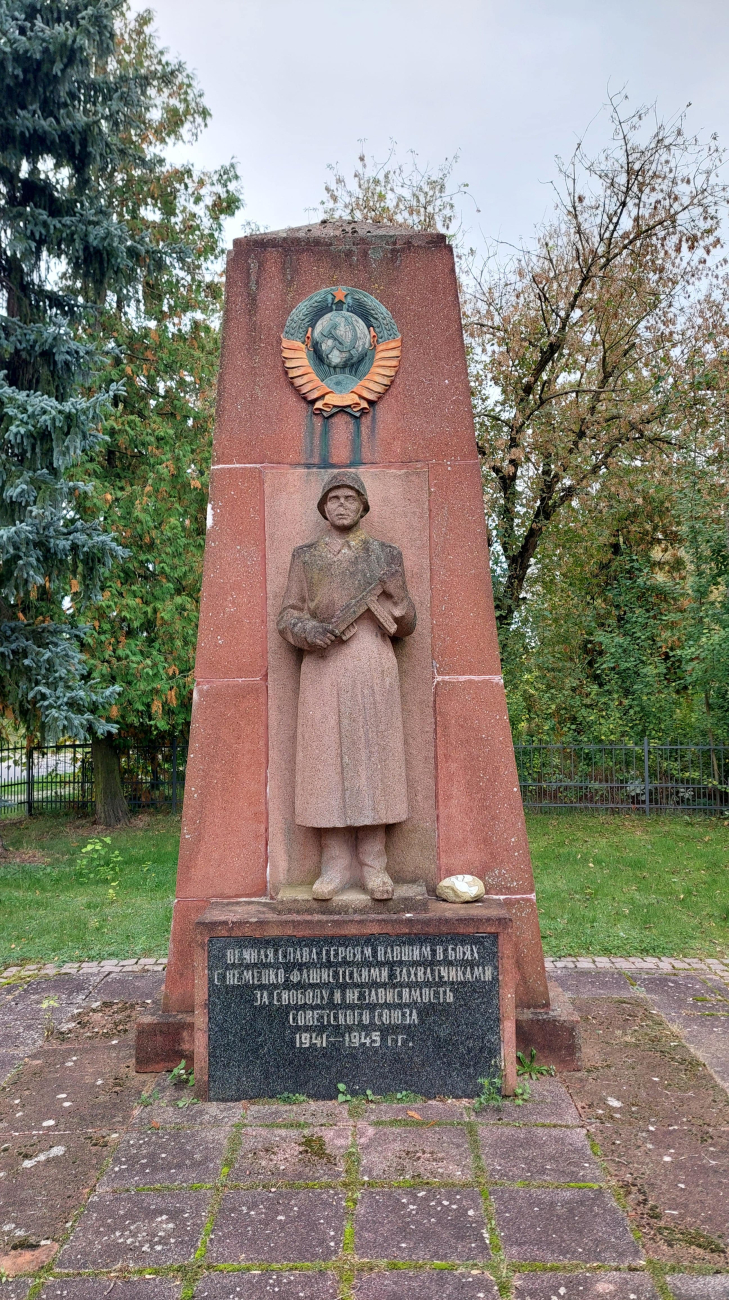Completed interview and virtual exhibition project
The definitive withdrawal of the former Soviet armed forces from East Germany on 31 August 1994 was a significant event in the history of armed conflicts, symbolically marking the end of the Cold War. After nearly 50 years of occupation, around half a million military personnel and their equipment left East Germany without violence in under four years. What remains are empty barracks, administrative buildings, military training areas, airports and various other sites, as well as a gap in the German culture of remembrance. This project wanted to analyse the social relevance and the political, economic and ecological consequences of this peaceful withdrawal as well as the conversion of the former military sites.
Interviews with individuals from politics, conversion practice and civic groups were be conducted throughout the project regarding the withdrawal of former military sites and their subsequent conversion for civilian use. The aim was to explore the mechanisms developed to cope with the conversion tasks, as well as people's experiences of the transformation period. Contemporary witnesses and experts were be interviewed about the places and their activities against the background of their biographies. The interviews conducted as part of the project are presented in the form of an online exhibition. To obtain a differentiated picture of the significance of the converted areas for society, the website will allow users to upload texts and images, submit individual experiences and perceptions of the former military areas via telephone surveys, and suggest further uses.
Research questions and project objectives
Brandenburg's management of the conversion sites is relevant not only for the history of transformation and their local significance, but also for other reasons. What should be done with 'military waste'? How can political, market, economic, social and socio-ecological interests be balanced during the conversion process? Who gets to decide on future use cases? How can a reconciliation process based on material evidence of the military be organised sustainably after the end of the conflict, and by whom? Collecting the experiences of contemporary witnesses in Brandenburg and contextualising them will be a valuable contribution to transformation research. Although the various strategies for coping with the disruptive consequences of withdrawal are embedded in their political and temporal contexts, they also have universal elements and questions. These can serve as important comparative examples in other regions and post-conflict societies. Alongside the scientific objective, the project aimed to highlight the peaceful legacy of the non-violent withdrawal of allied troops from Germany at a time of crisis, as demonstrated by the planned online transfer products and their participatory nature.
The project was conducted in cooperation with Dr Małgorzata Popiołek-Roßkamp from the Leibniz Institute for Research on Society and Space (IRS) in Erkner. The IRS was responsible for coordinating this third-party funded project.
The interviews recorded as part of the project are presented in the online exhibition “Neues Land ohne Krieg". The online exhibition was opened on October 15, 2025. It was developed by Małgorzata Popiołek-Roßkamp from the Leibniz Institute for Spatial Social Research (IRS) and Irmgard Zündorf from the Leibniz Center for Contemporary History Potsdam (ZZF) in collaboration with Maximilian Gärtner and Zoe Schodder.
In addition to introductory texts, the exhibition includes a series of images by Potsdam photographer Susanne Müller, who impressively documented the period of the Soviet troop withdrawal. In six video interviews, people involved at the time talk about various aspects of the conversion, such as politics, planning, citizen protests, nature conservation, and monument preservation.


